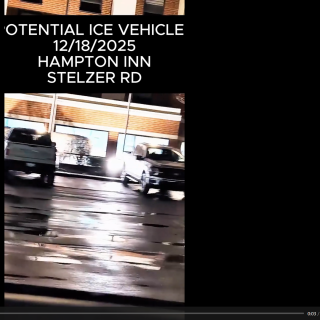Approximately 100 students and community members gathered outside OSU Hillel Wednesday, March 5 in protest of former Israeli Prime Minister Naftali Bennett, who was set to speak to students and members of the hillel community. The demonstration was part of a growing wave of opposition against Bennett’s U.S. university tour, which has faced backlash at multiple campuses. Just a day prior, more than 200 students at Columbia University protested his appearance.Then a day after the OSU protest, over 100 protested his appearance at the Harvard Business School on March 6, 2025. Naftali Bennett is currently on a U.S. university tour, organized by Hillel International’s Teach-In Tour 2025, in an effort to shape narratives about Israel and its policies amid growing student activism. His presence on college campuses comes at a time when student movements are increasingly challenging Israeli state policies and advocating for Palestinian rights.
In the wake of Naftali Bennett's speech at Columbia University on March 4, 2025, which was met with significant student protests, the Trump administration announced on March 7 the cancellation of approximately $400 million in federal grants and contracts to the university. The decision was attributed to the university’s handling of student protests and its response to allegations of antisemitism, a move that critics argue disproportionately targets advocacy for Palestinian rights and suppresses campus activism.
Naftali Bennett’s record is steeped in violence and policies that have devastated Palestinian and Lebanese communities. In 2013, he openly stated, “I’ve killed lots of Arabs in my life – and there’s no problem with that”. He has repeatedly rejected the possibility of Palestinian statehood, declaring, “There will not be a Palestinian state,” further entrenching Israel’s occupation and denying Palestinians their right to self-determination.
Determined to make their voices heard, protesters banged pots and pans, blew air horns, and chanted relentlessly. Some regularly uttered chants included: “We want justice, you say how, Get him off our campus now!”, “Bennett Bennett, you're to blame, ethnic cleansing is your name”, and “Come out, coward!”
One protestor stated “In this building, they’re harboring a war criminal, this is not our first time here. We protested 2 war criminals a month ago, and we disrupted, and they heard our message loud and clear. For Palestine, Gaza, Lebanon, Yemen, Syria, we disrupt.”
As a military commander in Israel and later a political leader, Bennett played a direct role in operations responsible for the deaths of hundreds of Palestinian and Lebanese civilians. One of the most infamous incidents was the 1996 Qana Massacre, where Israeli forces bombed a UN compound sheltering refugees, killing more than 100 civilians. A United Nations investigation concluded that the attack was likely deliberate, despite Israeli claims that it was an accident. Human rights organizations, including Amnesty International and Human Rights Watch, condemned the attack as a war crime, yet Bennett, who commanded operations in Lebanon, has never expressed remorse. As a government leader, he oversaw mass home demolitions, the escalation of illegal settlement expansion, and the push for full annexation of the West Bank.
The protest lasted for hours, continuing even after Bennett’s speech ended at 8:00 PM. Columbus police scrambled to manage the situation, whispering among themselves as they attempted to clear a path for Bennett’s departure. One officer, visibly frustrated, was overheard saying, “Why don’t they just make a decision already instead of making us wait?”
Inside, the atmosphere was charged with tension. Unidentified men in suits, presumably Bennett’s private security, moved in and out of the building, whispering to officers, gesturing discreetly, and orchestrating multiple exit strategies. Black SUVs stood poised at both the front and back entrances, while an unmarked blue sedan idled inconspicuously in an alley behind the parking lot. Next, an unusual scene unfolded: a man dressed in black struggled to climb over the surrounding fencing, drawing the attention of nearby protesters.
After an hour and a half of delays, three men in black hoodies suddenly rushed into the waiting vehicles at all exit points, which sped off simultaneously, including the unmarked blue sedan, which now had police lights. Bennett's security team executed a coordinated exit, avoiding protesters and cameras, in what appeared to be a deliberate attempt to prevent media coverage of his departure. If Bennett is considering a political comeback to replace Netanyahu, this would be bad press.
Bennett’s choice to speak at universities with strong anti-Zionist student bodies is deliberate. According to Ynet News, he specifically chose campuses like Ohio State and Colombia to “engage with students in support of Israel.” However, the overwhelming student opposition at OSU and Columbia suggests his efforts are backfiring. His visit also comes at a critical moment in Ohio, where SB 87, SB 53, and SB 1, proposed legislation that could restrict student activism on Palestine, are currently under review. These bills would limit student organizations’ ability to engage in political advocacy, restrict university funding for activism, and impose penalties on campus protests. The fact that Bennett is being given a platform at a time when students face increasing legal barriers to protest figures like him raises urgent concerns about whose voices are protected on campus and whose are being silenced.



